37+ Fruits That Start With A With Facts And Pictures

Fruits starting with A are often overlooked, but they offer a world of flavor. Many stick to familiar options, missing out on unique tastes and health benefits.
But here, I’ve explored countless exotic fruits and want to share my findings with you. In this article, I’ll introduce you to over 37+ amazing fruits that begin with A.
You’ll learn about their flavors, where they grow, and how to enjoy them. From sweet to tangy, juicy to creamy, these fruits will expand your palate and add variety to your diet.
Get ready to discover new favorites and impress your friends with your fruit knowledge!
Fruits that Start with A
Let’s explore the fruits that start with the letter “A,” from favorites to exotic delights.
1. Apple

Apples are round fruits with red, green, or yellow skin and a crisp, sweet interior. They have a slightly tart flavor and are widely enjoyed fresh, in desserts, or as juice.
Place of Origin: Central Asia
Scientific Name: Malus domestica
Famous Alternative Names: Malus, Pomme, Manzana
Nutritional Content per 100 grams:
| Calories | 52 |
|---|---|
| Fat | 0.2 g |
| Carbohydrates | 14 g |
| Protein | 0.3 g |
| Fiber | 2.4 g |
Health Benefits:
- Rich in antioxidants likeQuercetin, Catechin
- Supports heart health by lowering cholesterol levels
- Promotes digestive health due to high fiber content
- It may help regulate blood sugar levels
2. Apricot

Apricot is a small, golden-orange fruit with a velvety skin and sweet, slightly tart flesh. It is commonly eaten fresh, dried, or in jams and desserts.
Place of Origin: China
Scientific Name: Prunus armeniaca
Famous Alternative Names: Armenian Plum, Khubani, Meihuaguo
Nutritional Content per 100 grams:
| Calories | 48 |
|---|---|
| Fat | 0.4 g |
| Carbohydrates | 11 g |
| Protein | 1.4 g |
| Fiber | 2 g |
Health Benefits:
- Rich in antioxidants likeBeta-carotene, Lycopene
- Supports eye health due to high vitamin A content
- Promotes skin health
- May reduce inflammation
3. Avocado

Avocado is a pear-shaped fruit with thick, green skin and creamy, rich flesh. It has a mild, nutty flavor and is popular in salads, sandwiches, and as guacamole.
Place of Origin: Central Mexico
Scientific Name: Persea americana
Famous Alternative Names: Alligator Pear, Butter Fruit
Nutritional Content per 100 grams:
| Calories | 160 |
|---|---|
| Fat | 15 g |
| Carbohydrates | 9 g |
| Protein | 2 g |
| Fiber | 7 g |
Health Benefits:
- Rich in antioxidants likeLutein, Zeaxanthin
- Supports eye health
- Promotes heart health due to high monounsaturated fat content
- It may help with weight management
4. Acerola

Acerola is a bright red, cherry-like fruit with a tart flavor. It is known for its high vitamin C content and is often used in juices, supplements, and jams.
Place of Origin: Southern Mexico, Central America
Scientific Name: Malpighia emarginata
Famous Alternative Names: Barbados Cherry, West Indian Cherry
Nutritional Content per 100 grams:
| Calories | 32 |
|---|---|
| Fat | 0.3 g |
| Carbohydrates | 8 g |
| Protein | 0.4 g |
| Fiber | 1.1 g |
Health Benefits:
- Rich in antioxidants likeAscorbic acid (Vitamin C), Anthocyanins
- Boosts immune system
- Supports collagen production for healthy skin
- It may help reduce the risk of chronic diseases
5. Ackee

Ackee is a pear-shaped fruit with bright red skin and soft, creamy yellow flesh. It has a mild, buttery flavor and is a key ingredient in Jamaican cuisine.
Place of Origin: West Africa
Scientific Name: Blighia sapida
Famous Alternative Names: Achee, Ackee Apple
Nutritional Content per 100 grams:
| Calories | 151 |
|---|---|
| Fat | 15 g |
| Carbohydrates | 3.4 g |
| Protein | 2.9 g |
| Fiber | 0.8 g |
Health Benefits:
- Rich in antioxidants likeFlavonoids, Phenolic acids
- Supports heart health by reducing bad cholesterol
- Provides healthy fats for brain function
- Aids in muscle growth and repair
6. Amla

Amla, also known as Indian Gooseberry, is a small, green fruit with a sour, astringent taste. It is often used in traditional Indian medicine and dietary supplements.
Place of Origin: India
Scientific Name: Phyllanthus emblica
Famous Alternative Names: Indian Gooseberry, Amalaka
Nutritional Content per 100 grams:
| Calories | 44 |
|---|---|
| Fat | 0.6 g |
| Carbohydrates | 10 g |
| Protein | 1 g |
| Fiber | 4.3 g |
Health Benefits:
- Rich in antioxidants likeAscorbic acid (Vitamin C), Ellagic acid
- Enhances immune function
- Promotes liver health
- It may lower blood sugar levels
7. Atemoya

Atemoya is a hybrid of cherimoya and sugar apple. It has green, scaly skin and sweet, creamy flesh that tastes like a mix of pineapple and banana.
Place of Origin: United States
Scientific Name: Annona × Atemoya
Famous Alternative Names: Pineapple Sugar Apple
Nutritional Content per 100 grams:
| Calories | 94 |
|---|---|
| Fat | 0.3 g |
| Carbohydrates | 25 g |
| Protein | 2 g |
| Fiber | 4.4 g |
Health Benefits:
- Rich in antioxidants likeVitamin C, Carotenoids
- Supports immune health
- Promotes healthy digestion
- May reduce inflammation
8. Asian Pear

Asian Pear is a round fruit with a crisp texture and juicy, sweet flavor. It is often eaten fresh or used in salads and desserts.
Place of Origin: East Asia
Scientific Name: Pyrus pyrifolia
Famous Alternative Names: Nashi Pear, Sand Pear, Apple Pear
Nutritional Content per 100 grams:
| Calories | 42 |
|---|---|
| Fat | 0.2 g |
| Carbohydrates | 10 g |
| Protein | 0.5 g |
| Fiber | 3.6 g |
Health Benefits:
- Rich in antioxidants likeFlavonoids, Polyphenols
- Supports digestive health
- Promotes heart health
- It may improve blood circulation
9. African Cucumber

African Cucumber, also known as Horned Melon, is an exotic fruit with spiky orange skin and lime-green, jelly-like flesh. It has a tart, cucumber-like flavor.
Place of Origin: Sub-Saharan Africa
Scientific Name: Cucumis metuliferus
Famous Alternative Names: Horned Melon, Kiwano
Nutritional Content per 100 grams:
| Calories | 44 |
|---|---|
| Fat | 1.3 g |
| Carbohydrates | 8 g |
| Protein | 1.8 g |
| Fiber | 3.7 g |
Health Benefits:
- Rich in antioxidants likeBeta-carotene, Alpha-tocopherol
- Supports eye health
- Promotes skin health
- It may boost immune function
10. Alpine Strawberry

Alpine Strawberry is a small, aromatic fruit with a sweet flavor. It is often used in desserts, jams, and as a garnish.
Place of Origin: Europe
Scientific Name: Fragaria vesca
Famous Alternative Names: Wild Strawberry, Woodland Strawberry
Nutritional Content per 100 grams:
| Calories | 33 |
|---|---|
| Fat | 0.3 g |
| Carbohydrates | 8 g |
| Protein | 0.8 g |
| Fiber | 2 g |
Health Benefits:
- It is rich in antioxidants likeVitamin C, Ellagic acid
- Promotes heart health
- Supports immune function
- It may improve skin health
11. Abiu

Abiu is a tropical fruit with smooth, yellow skin and translucent, jelly-like flesh. It has a sweet, caramel-like flavor and is enjoyed fresh or in desserts.
Place of Origin: Amazon Rainforest
Scientific Name: Pouteria caimito
Famous Alternative Names: Caimito, Yellow Sapote
Nutritional Content per 100 grams:
| Calories | 62 |
|---|---|
| Fat | 0.7 g |
| Carbohydrates | 15 g |
| Protein | 0.7 g |
| Fiber | 1.4 g |
Health Benefits:
- Rich in antioxidants like vitamin C, Polyphenols
- Supports immune health
- Promotes digestive health
- It may reduce the risk of chronic diseases
12. Arazá-boi

Arazá-boi is a small, yellow fruit with a sour, citrus-like flavor. It is often used in juices, jams, and desserts.
Place of Origin: Amazon Rainforest
Scientific Name: Eugenia stipitata
Famous Alternative Names: Araçá-boi, Brazilian Guava
Nutritional Content per 100 grams:
| Calories | 44 |
|---|---|
| Fat | 0.6 g |
| Carbohydrates | 10 g |
| Protein | 0.8 g |
| Fiber | 2.2 g |
Health Benefits:
- Highly rich in antioxidants likeVitamin C, Flavonoids
- Boosts immune system
- Supports digestive health
- Promotes skin health
13. Alligator Apple
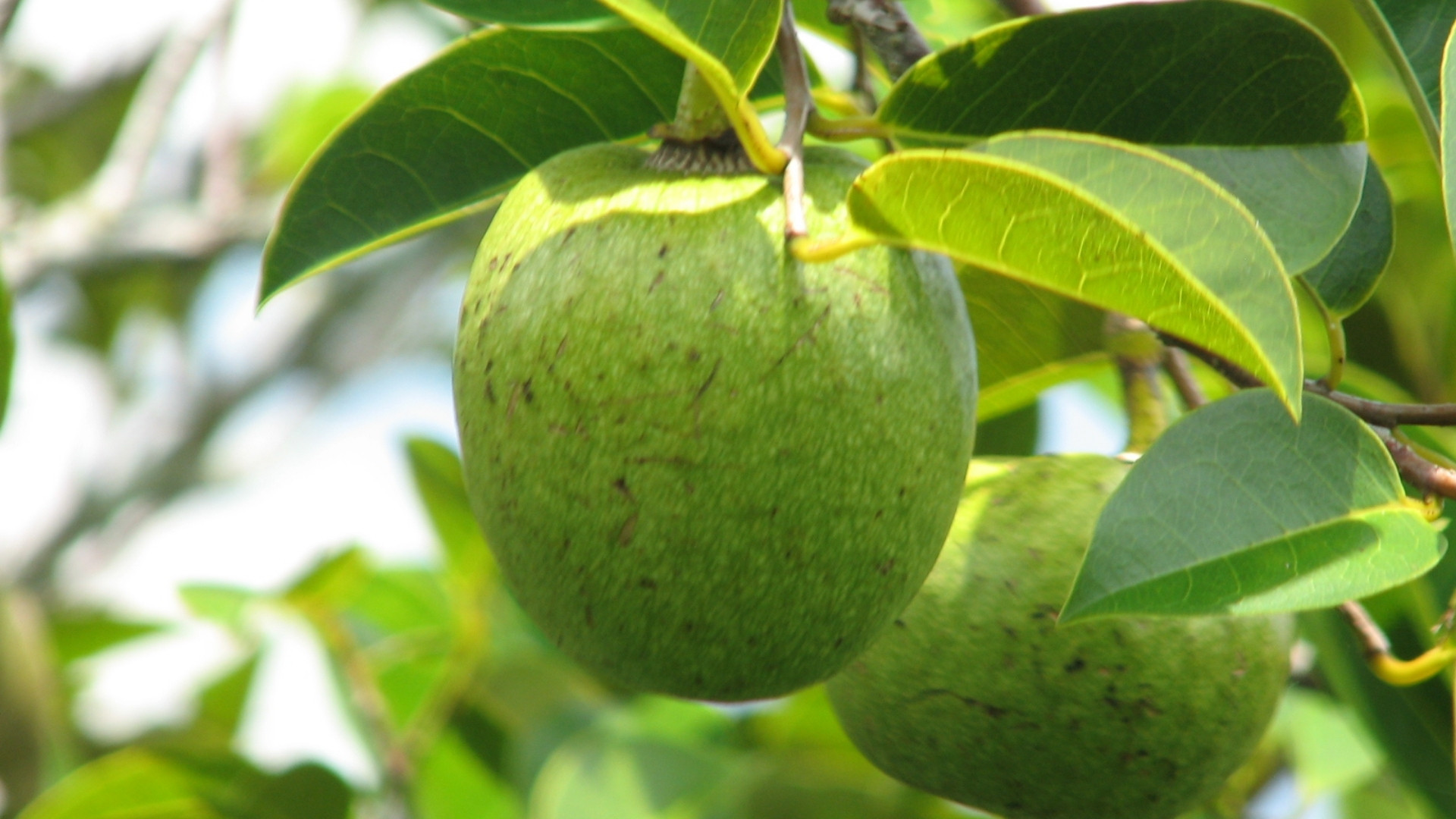
Alligator Apple is a large, green fruit with tough skin and creamy, white flesh. It has a mildly sweet flavor and is often eaten fresh or used in desserts.
Place of Origin: Central America
Scientific Name: Annona glabra
Famous Alternative Names: Pond Apple, Corkwood
Nutritional Content per 100 grams:
| Calories | 80 |
|---|---|
| Fat | 0.6 g |
| Carbohydrates | 19 g |
| Protein | 1.2 g |
| Fiber | 3 g |
Health Benefits:
- It is rich in antioxidants like vitamin C, Flavonoids
- Highly supports heart health
- It helps in promoting good digestive health
- It also may boost immune function
14. Aronia

Aronia, also known as Chokeberry, is a small, dark berry with a tart flavor. Due to its high antioxidant content, it is often used in juices, jams, and as a dietary supplement.
Place of Origin: North America
Scientific Name: Aronia melanocarpa
Famous Alternative Names: Chokeberry
Nutritional Content per 100 grams:
| Calories | 47 |
|---|---|
| Fat | 0.5 g |
| Carbohydrates | 10 g |
| Protein | 1.4 g |
| Fiber | 5.3 g |
Health Benefits:
- It is abundantly rich in antioxidants likeAnthocyanins, Quercetin
- Helps to reduce inflammation
- It also supports cardiovascular health
- It may boost immune function
15. American Persimmon

American Persimmon is a small, orange fruit with a sweet, honey-like flavor. It is commonly eaten fresh or used in desserts and baked goods.
Place of Origin: Eastern United States
Scientific Name: Diospyros virginiana
Famous Alternative Names: Common Persimmon, Possumwood
Nutritional Content per 100 grams:
| Calories | 81 |
|---|---|
| Fat | 0.4 g |
| Carbohydrates | 18.6 g |
| Protein | 0.8 g |
| Fiber | 3.6 g |
Health Benefits:
- Mainly rich in antioxidants likeBeta-carotene, Vitamin C
- Supports digestive health
- Promotes heart health
- It may boost immune function
16. Antidesma

Antidesma is a small, red-to-black fruit with a sweet and sour flavor. It is often used in traditional medicine, jams, and wines.
Place of Origin: Southeast Asia
Scientific Name: Antidesma bunius
Famous Alternative Names: Bignay, Chinese Laurel
Nutritional Content per 100 grams:
| Calories | 41 |
|---|---|
| Fat | 0.6 g |
| Carbohydrates | 9 g |
| Protein | 0.5 g |
| Fiber | 2 g |
Health Benefits:
- It is rich in antioxidants likeAnthocyanins, Flavonoids
- Reduces inflammation
- Supports cardiovascular health
- It may have anti-cancer properties
17. Asimina
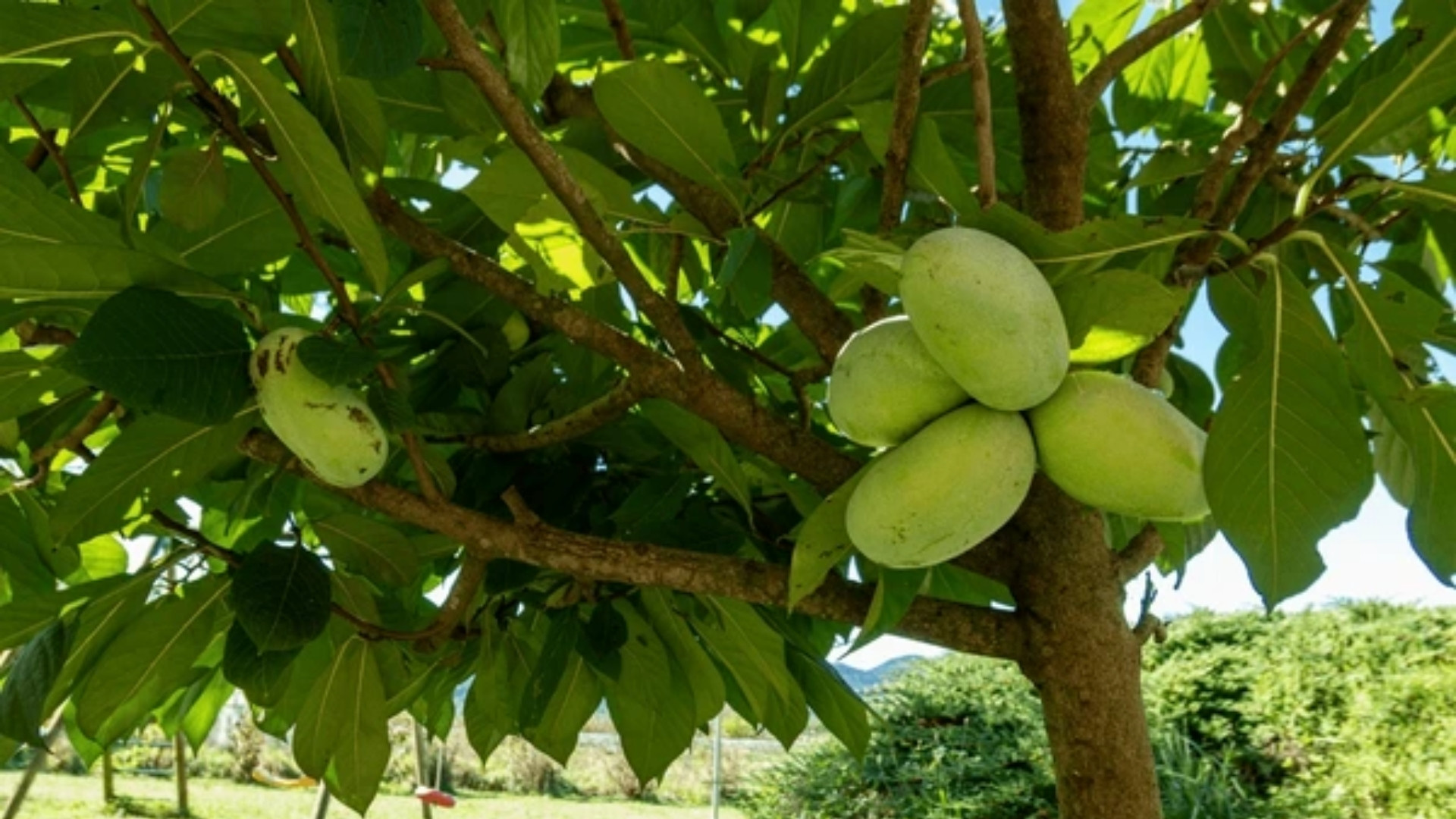
Asimina is a genus that includes the Pawpaw, a fruit with a custard-like flesh and tropical flavor. It is often eaten fresh or used in desserts.
Place of Origin: Eastern United States
Scientific Name: Asimina
Famous Alternative Names: Pawpaw, Custard Apple
Nutritional Content per 100 grams:
| Calories | 80 |
|---|---|
| Fat | 1.2 g |
| Carbohydrates | 18.8 g |
| Protein | 1.2 g |
| Fiber | 2.6 g |
Health Benefits:
- It is highly rich in antioxidants likeAcetogenins, Vitamin C
- Supports immune health
- Promotes digestive health
- It may have anti-cancer properties
18. African Medlar
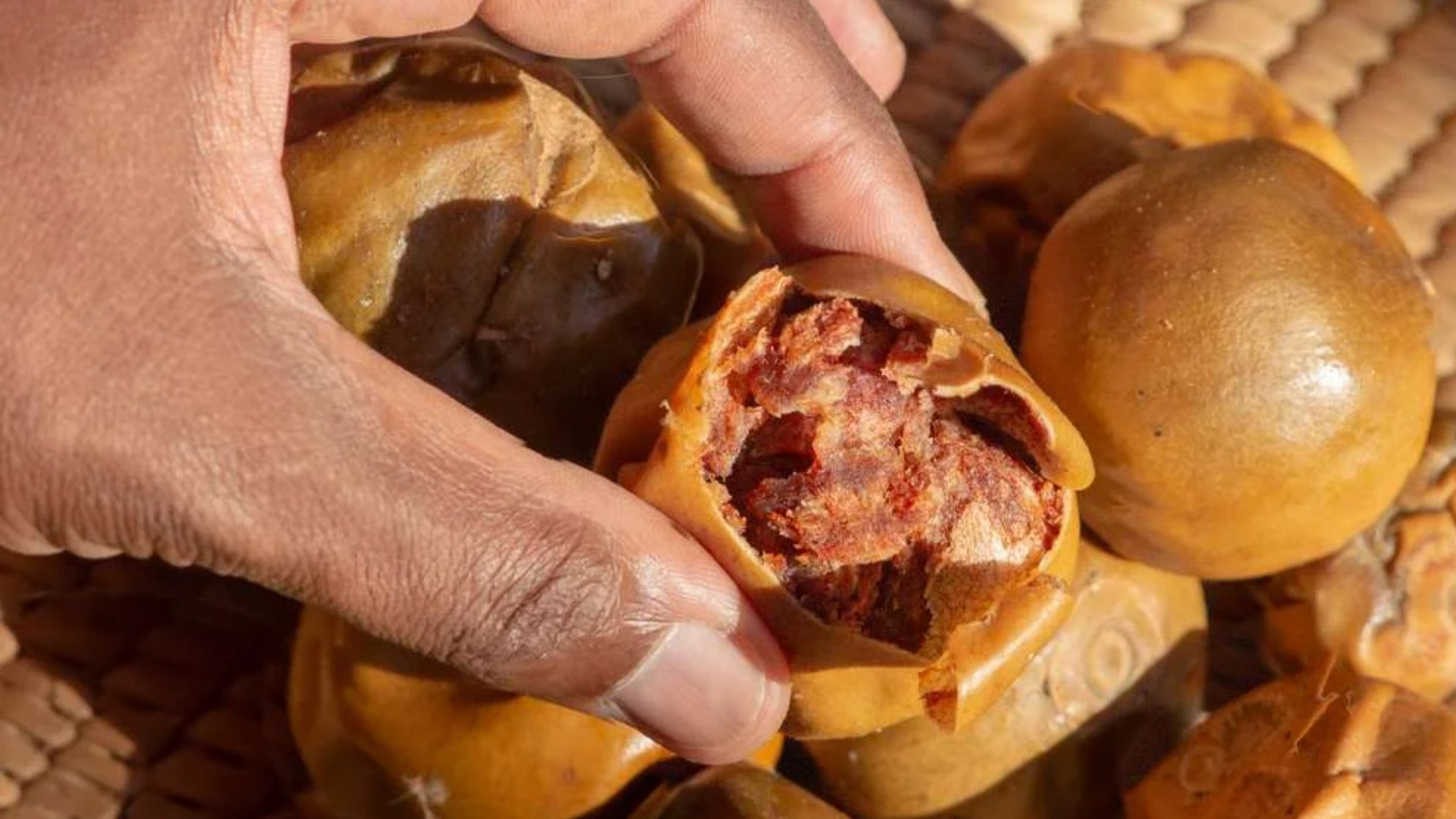
African Medlar is a small, brown fruit with a sweet, tangy flavor. It is often eaten fresh or used in traditional medicines.
Place of Origin: Africa
Scientific Name: Vangueria infausta
Famous Alternative Names: Mmilo, Wild Medlar
Nutritional Content per 100 grams:
| Calories | 50 |
|---|---|
| Fat | 0.3 g |
| Carbohydrates | 12 g |
| Protein | 0.6 g |
| Fiber | 2.1 g |
Health Benefits:
- Mainly rich in antioxidants likeVitamin C, Phenolic compounds
- Supports immune health
- Promotes skin health
- May reduce inflammation
19. Apple Berry

Apple Berry is a small, green fruit with a tart, apple-like flavor. It is often eaten fresh or used in desserts and jams.
Place of Origin: Australia
Scientific Name: Billardiera scandens
Famous Alternative Names: Dumplings, Australian Bluebell
Nutritional Content per 100 grams:
| Calories | 40 |
|---|---|
| Fat | 0.4 g |
| Carbohydrates | 10 g |
| Protein | 0.6 g |
| Fiber | 2.2 g |
Health Benefits:
- Usually rich in antioxidants likeVitamin C, Flavonoids
- Supports immune health
- Promotes digestive health
- It may improve skin health
20. Atherton Raspberry

Atherton Raspberry is a small, red fruit with a sweet, tangy flavor. It is often eaten fresh or used in jams and desserts.
Place of Origin: Australia
Scientific Name: Rubus probus
Famous Alternative Names: Australian Raspberry
Nutritional Content per 100 grams:
| Calories | 52 |
|---|---|
| Fat | 0.2 g |
| Carbohydrates | 12 g |
| Protein | 1.2 g |
| Fiber | 6.5 g |
Health Benefits:
- It is mainly rich in antioxidants likeEllagic acid, Anthocyanins
- Supports cardiovascular health
- Promotes healthy digestion
- May reduce inflammation
21. Achachairu
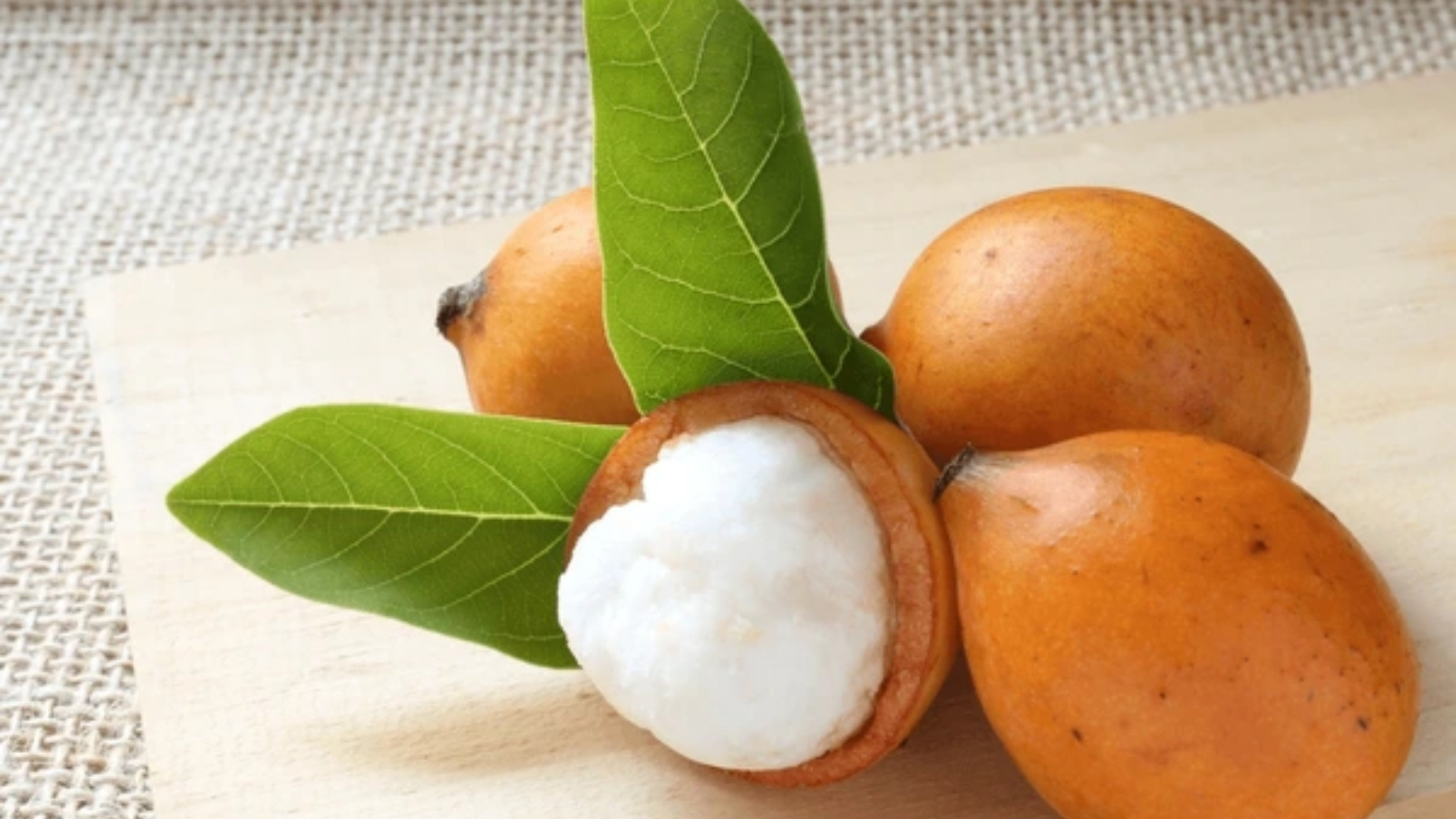
Achachairu is a small, orange fruit with a sweet, tangy flavor. It is often eaten fresh or used in beverages and desserts.
Place of Origin: Bolivia
Scientific Name: Garcinia humilis
Famous Alternative Names: Achacha
Nutritional Content per 100 grams:
| Calories | 48 |
|---|---|
| Fat | 0.3 g |
| Carbohydrates | 11 g |
| Protein | 0.9 g |
| Fiber | 1.8 g |
Health Benefits:
- It has antioxidants likeHydroxycitric acid, Vitamin C
- Supports immune health
- Promotes digestive health
- It may aid in weight loss
22. American Gooseberry
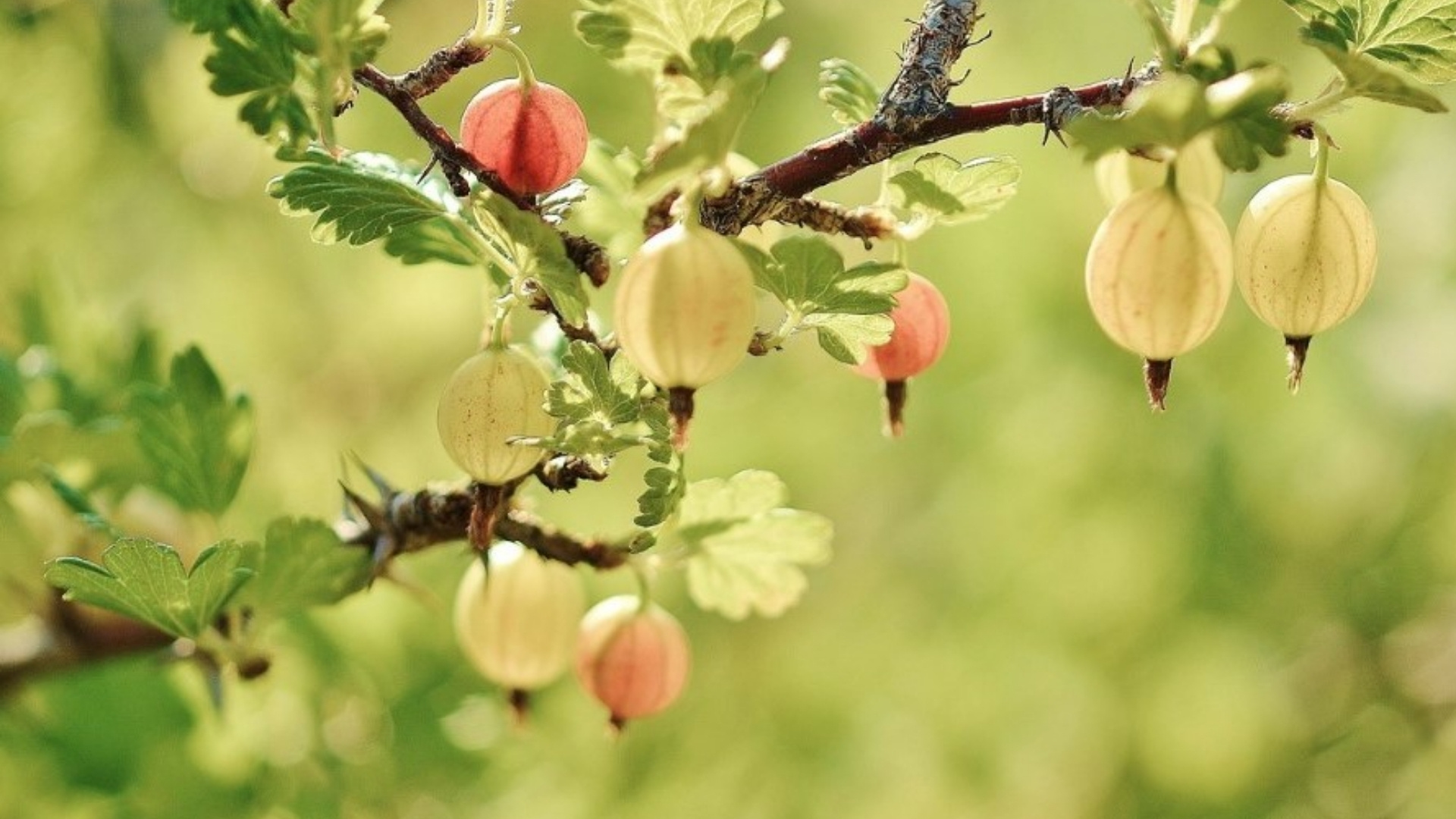
American Gooseberry is a small, green-to-red fruit with a tart flavor. It is often used in jams, desserts, and as a garnish.
Place of Origin: North America
Scientific Name: Ribes hirtellum
Famous Alternative Names: Wild Gooseberry
Nutritional Content per 100 grams:
| Calories | 44 |
|---|---|
| Fat | 0.6 g |
| Carbohydrates | 10 g |
| Protein | 1.0 g |
| Fiber | 4.3 g |
Health Benefits:
- It is rich in antioxidants likeVitamin C, Flavonoids
- Supports immune health
- Promotes digestive health
- It may improve skin health
23. Arctic Raspberry
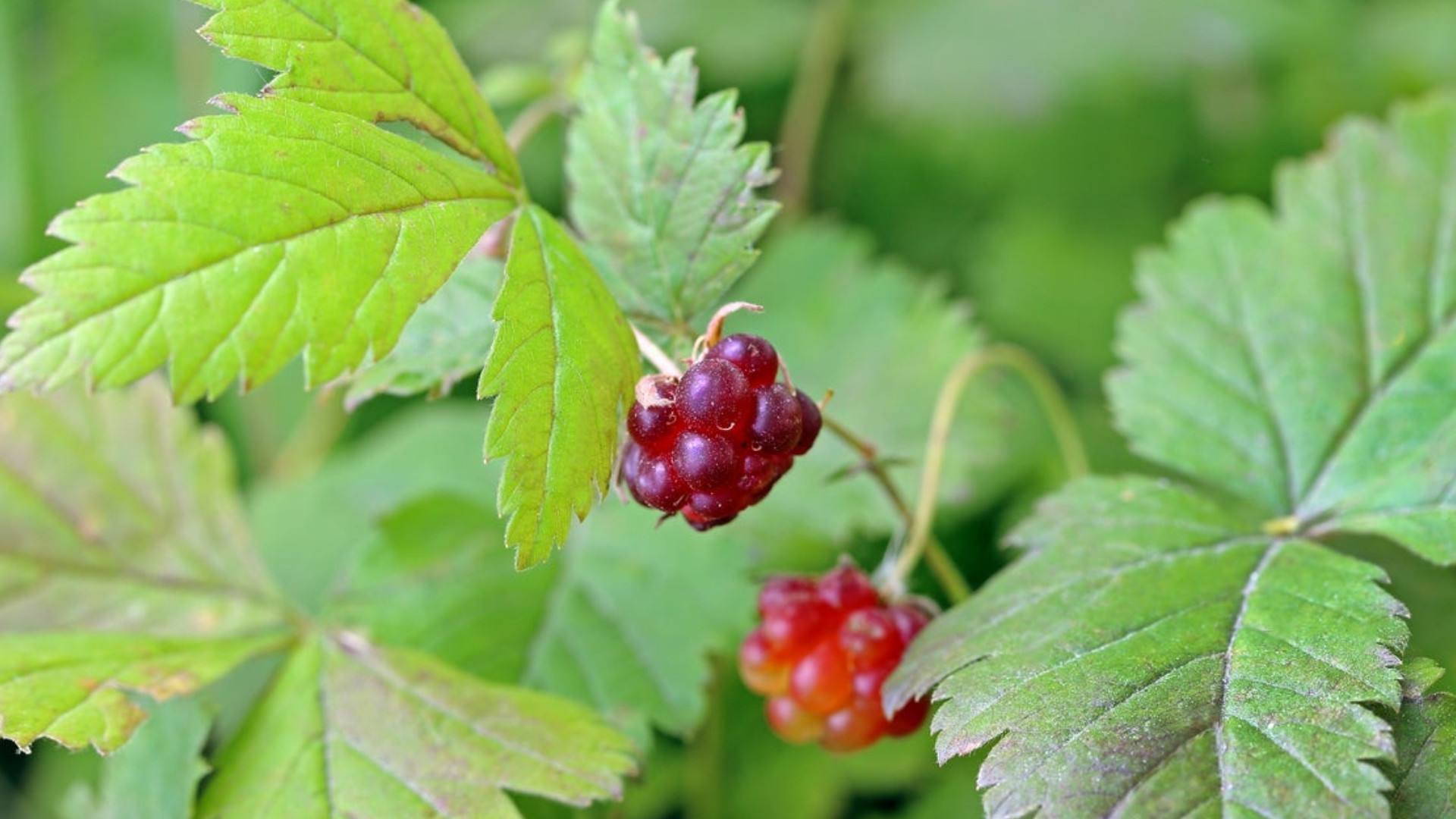
Arctic Raspberry is a small, red fruit with a sweet, tart flavor. It is often used in jams, desserts, and as a flavoring for beverages.
Place of Origin: Northern Hemisphere
Scientific Name: Rubus arcticus
Famous Alternative Names: Nagoonberry, Arctic Bramble
Nutritional Content per 100 grams:
| Calories | 41 |
|---|---|
| Fat | 0.4 g |
| Carbohydrates | 9.6 g |
| Protein | 0.8 g |
| Fiber | 3.5 g |
Health Benefits:
- It is rich in various antioxidants, but mainly it has Anthocyanins, Ellagic acid
- Supports cardiovascular health
- Promotes healthy digestion
- It may boost immune function
24. Australian Round Lime

Australian Round Lime is a small, green citrus fruit with a tart flavor. It is often used in cooking, beverages, and as a garnish.
Place of Origin: Australia
Scientific Name: Citrus australis
Famous Alternative Names: Dooja, Bush Lime
Nutritional Content per 100 grams:
| Calories | 30 |
|---|---|
| Fat | 0.2 g |
| Carbohydrates | 10 g |
| Protein | 0.7 g |
| Fiber | 2.8 g |
Health Benefits:
- Rich in antioxidants likeVitamin C, Flavonoids
- Supports immune health
- It promotes healthy skin
- May improve digestion
25. Australian Desert Lime

Australian Desert Lime is a small, green citrus fruit with a tart, tangy flavor. It is often used in cooking, beverages, and as a garnish.
Place of Origin: Australia
Scientific Name: Citrus glauca
Famous Alternative Names: Desert Lime, Bush Lime
Nutritional Content per 100 grams:
| Calories | 29 |
|---|---|
| Fat | 0.2 g |
| Carbohydrates | 9.8 g |
| Protein | 0.6 g |
| Fiber | 2.5 g |
Health Benefits:
- Rich in antioxidants like Vitamin C, Flavonoids
- Supports immune health
- Promotes healthy skin
- May improve digestion
26. Azarole

Azarole is a small, red-to-yellow fruit with a sweet, tangy flavor. It is often eaten fresh or used in jams, jellies, and desserts.
Place of Origin: Mediterranean Region
Scientific Name: Crataegus azarolus
Famous Alternative Names: Mediterranean Medlar, Azarole Hawthorn
Nutritional Content per 100 grams:
| Calories | 55 |
|---|---|
| Fat | 0.4 g |
| Carbohydrates | 12 g |
| Protein | 0.6 g |
| Fiber | 2.5 g |
Health Benefits:
- It is highly rich in antioxidants likeFlavonoids, Vitamin C
- Supports heart health
- Promotes healthy skin
- May reduce inflammation
27. African Cherry Orange

African Cherry Orange is a small orange fruit with a sweet, tangy flavor. It is often eaten fresh or used in juices, jams, and desserts.
Place of Origin: West Africa
Scientific Name: Citropsis articulata
Famous Alternative Names: West African Cherry Orange, Uganda Cherry Orange
Nutritional Content per 100 grams:
| Calories | 45 |
|---|---|
| Fat | 0.3 g |
| Carbohydrates | 11 g |
| Protein | 0.8 g |
| Fiber | 1.5 g |
Health Benefits:
- Rich in antioxidants likeVitamin C, Flavonoids
- Supports immune health
- Promotes healthy skin
- May improve digestion
28. African Star Apple

African Star Apple is a small, star-shaped fruit with a sweet, tangy flavor. It is often eaten fresh or used in juices, jams, and desserts.
Place of Origin: West Africa
Scientific Name: Chrysophyllum albidum
Famous Alternative Names: Agbalumo, Udara
Nutritional Content per 100 grams:
| Calories | 62 |
|---|---|
| Fat | 1.2 g |
| Carbohydrates | 14 g |
| Protein | 1.6 g |
| Fiber | 3 g |
Health Benefits:
- Abundantly rich in antioxidants like vitamin C, Flavonoids
- Supports immune health
- Promotes digestive health
- It may improve skin health
29. Acai Palm

Acai Palm produces small, dark purple berries with a rich, earthy flavor. The berries are often used in smoothies, juices, and as dietary supplements due to their high antioxidant content.
Place of Origin: South America
Scientific Name: Euterpe oleracea
Famous Alternative Names: Acai Berry, Amazonian Palm Berry
Nutritional Content per 100 grams:
| Calories | 70 |
|---|---|
| Fat | 5 g |
| Carbohydrates | 4 g |
| Protein | 1 g |
| Fiber | 2 g |
Health Benefits:
- It is rich in antioxidants like Anthocyanins, Polyphenols
- Supports heart health
- It helps to promote brain health
- It may boost energy levels
30. African Breadfruit

African Breadfruit is a large, spiky fruit with a starchy, bread-like interior. It is often cooked and eaten as a staple food in various African cuisines.
Place of Origin: West Africa
Scientific Name: Treculia africana
Famous Alternative Names: Wild Jackfruit, African Jackfruit
Nutritional Content per 100 grams:
| Calories | 102 |
|---|---|
| Fat | 0.5 g |
| Carbohydrates | 26 g |
| Protein | 1.6 g |
| Fiber | 5 g |
Health Benefits:
- It is rich in antioxidants like Polyphenols, Vitamin C
- Provides sustained energy
- It greatly helps to support digestive health
- It helps to reduce inflammation
31. Akebia Quinata
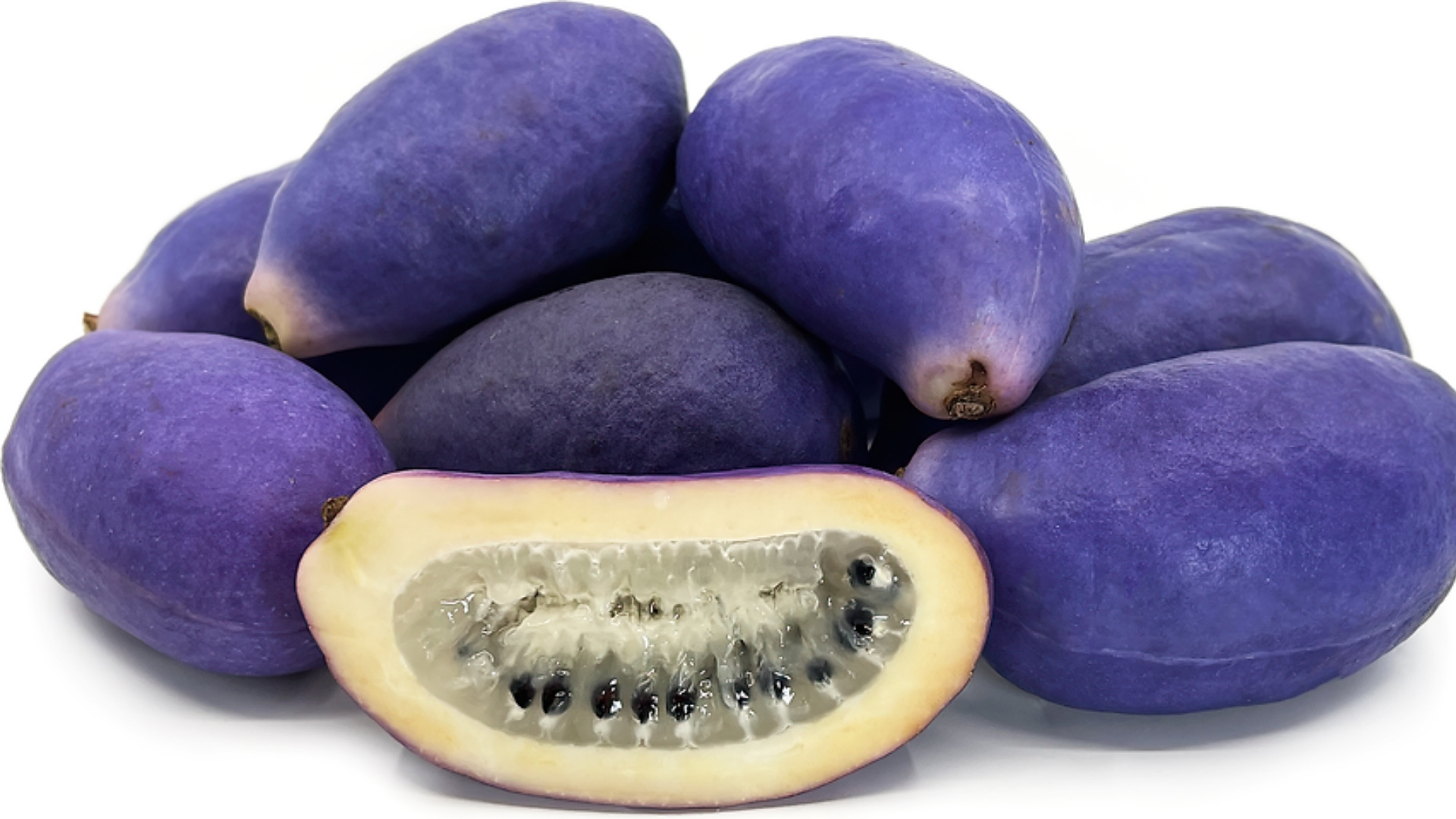
Akebia is a small, purple fruit with a sweet, jelly-like interior. It is often eaten fresh or used in traditional medicines and desserts.
Place of Origin: East Asia
Scientific Name: Akebia quinata
Famous Alternative Names: Chocolate Vine, Five-leaf Akebia
Nutritional Content per 100 grams:
| Calories | 58 |
|---|---|
| Fat | 0.3 g |
| Carbohydrates | 13 g |
| Protein | 0.8 g |
| Fiber | 2.1 g |
Health Benefits:
- It is highly rich in antioxidants likeVitamin C, Polyphenols
- Supports digestive health
- Promotes skin health
- It helps in reducing inflammation
32. Australian Bush Cherry

Australian Bush Cherry is a small, red fruit with a tart flavor. It is often eaten fresh or used in jams, jellies, and desserts.
Place of Origin: Australia
Scientific Name: Syzygium australe
Famous Alternative Names: Brush Cherry, Creek Lilly Pilly
Nutritional Content per 100 grams:
| Calories | 50 |
|---|---|
| Fat | 0.3 g |
| Carbohydrates | 12 g |
| Protein | 0.8 g |
| Fiber | 3 g |
Health Benefits:
- Rich in antioxidants like Anthocyanins, Flavonoids
- Supports heart health
- It helps to promote immune function
- It may improve skin health
33. Amanatsu

Amanatsu is a medium-sized orange citrus fruit with a sweet, slightly tart flavor. It is often eaten fresh or used in juices and desserts.
Place of Origin: Japan
Scientific Name: Citrus natsudaidai
Famous Alternative Names: Natsumikan, Japanese Summer Orange
Nutritional Content per 100 grams:
| Calories | 35 |
|---|---|
| Fat | 0.1 g |
| Carbohydrates | 9 g |
| Protein | 0.7 g |
| Fiber | 2.2 g |
Health Benefits:
- Antioxidants like vitamin C and flavonoids are found in it
- Supports immune health
- Promotes skin health
- May improve digestion
34. Anchovy Pear

Anchovy Pear is a small, green fruit with a tangy, cucumber-like flavor. It is often used in salads, pickles, and traditional medicines.
Place of Origin: Central America
Scientific Name: Grias cauliflora
Famous Alternative Names: River Pear
Nutritional Content per 100 grams:
| Calories | 44 |
|---|---|
| Fat | 0.2 g |
| Carbohydrates | 10 g |
| Protein | 0.8 g |
| Fiber | 2.4 g |
Health Benefits:
- Rich in antioxidants likeVitamin C, Polyphenols
- Supports digestive health
- Promotes skin health
- May reduce inflammation
35. Andean Blackberry
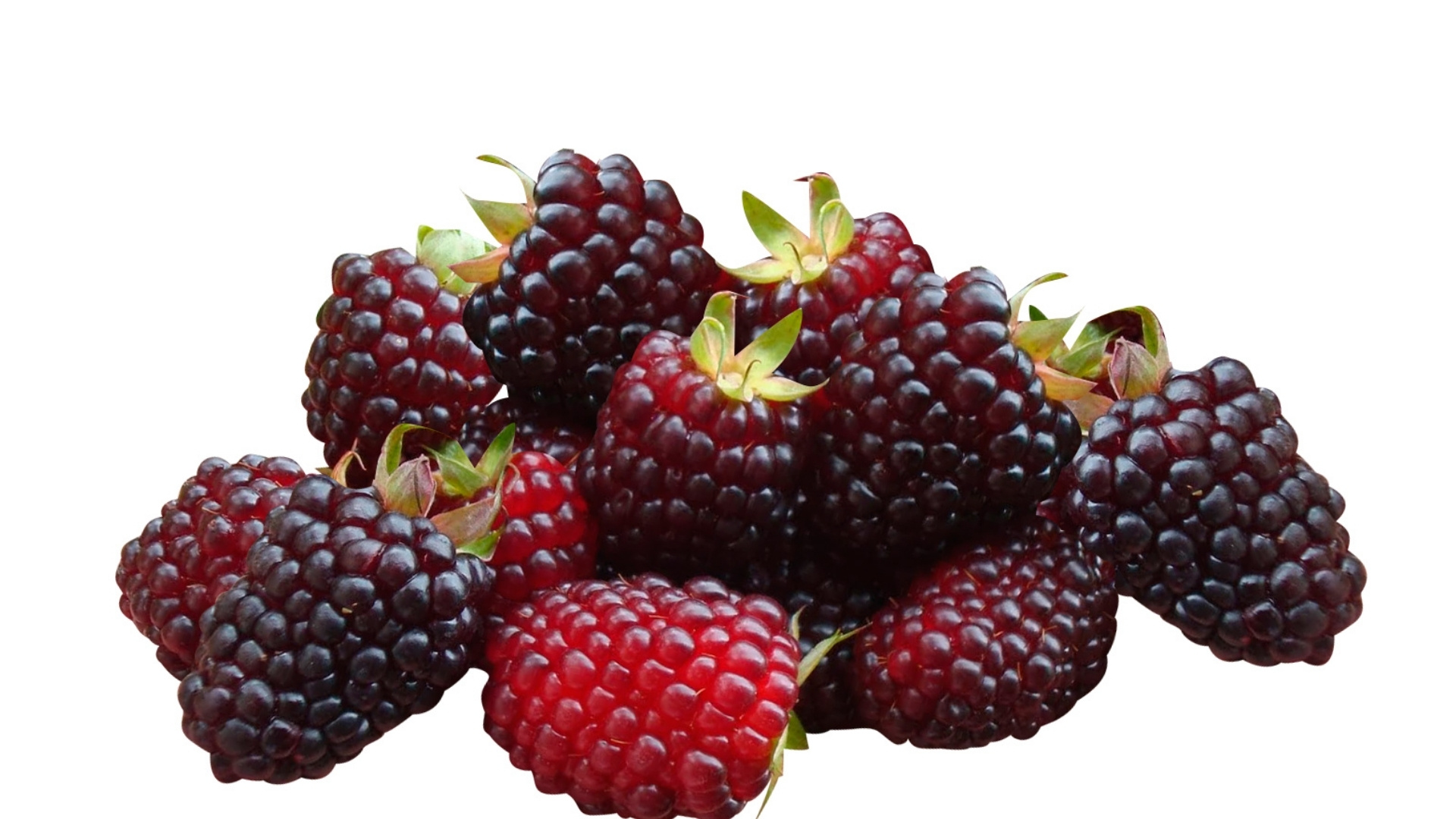
Andean Blackberry is a small, dark berry with a sweet, tart flavor. It is often used in jams, desserts, and as a flavoring for beverages.
Place of Origin: Andes Mountains
Scientific Name: Rubus glaucus
Famous Alternative Names: Mora de Castilla, Colombian Blackberry
Nutritional Content per 100 grams:
| Calories | 43 |
|---|---|
| Fat | 0.5 g |
| Carbohydrates | 9.6 g |
| Protein | 1.3 g |
| Fiber | 5.3 g |
Health Benefits:
- Antioxidants like Anthocyanins and vitamin C are present in this fruit
- Supports cardiovascular health
- Promotes healthy digestion
- It may boost immune function
36. Apple Guava
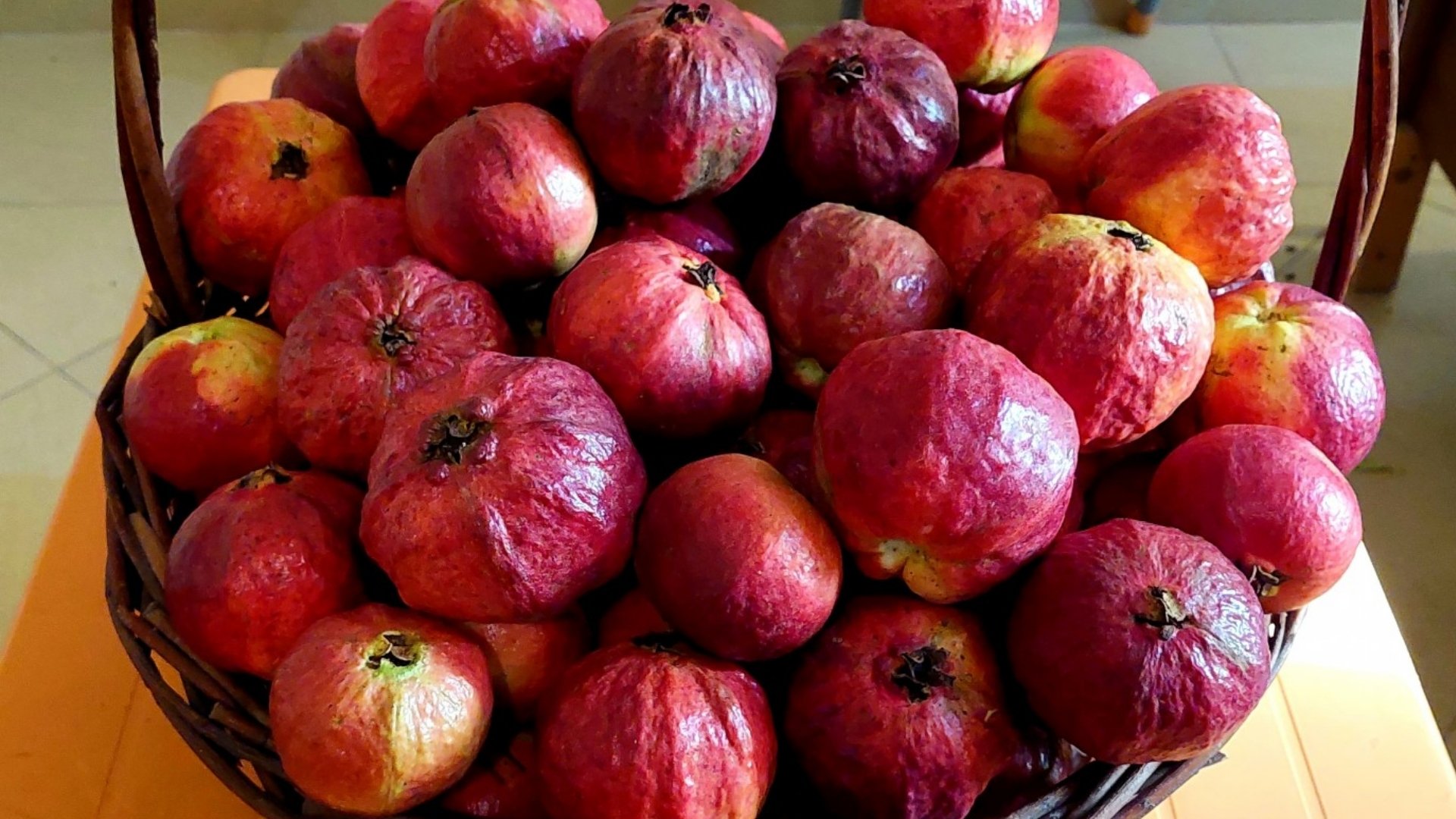
Apple Guava is a small, round fruit with a sweet, aromatic flavor. It is often eaten fresh or used in juices, jams, and desserts.
Place of Origin: Central America
Scientific Name: Psidium guajava
Famous Alternative Names: Guava, Guayaba
Nutritional Content per 100 grams:
| Calories | 68 |
|---|---|
| Fat | 0.9 g |
| Carbohydrates | 14 g |
| Protein | 2.6 g |
| Fiber | 5.4 g |
Health Benefits:
- Rich in antioxidants likeVitamin C, Lycopene
- Supports immune health
- Promotes digestive health
- It may reduce blood sugar levels
37. Ausubo

Ausubo is a large, round fruit with a sweet, starchy interior. It is often cooked and eaten as a staple in various tropical regions.
Place of Origin: Caribbean
Scientific Name: Manilkara bidentata
Famous Alternative Names: Balata, Bulletwood
Nutritional Content per 100 grams:
| Calories | 120 |
|---|---|
| Fat | 0.6 g |
| Carbohydrates | 31 g |
| Protein | 2 g |
| Fiber | 2.8 g |
Health Benefits:
- It is highly rich in antioxidants likePolyphenols, Vitamin C
- It also provides sustained energy
- Greatly supports digestive health
- It helps in reducing inflammation
38. Amra

Amra is a small, green fruit with a tart flavor. It is often eaten fresh or used in pickles, sauces, and traditional medicines.
Place of Origin: Southeast Asia
Scientific Name: Spondias mombin
Famous Alternative Names: Hog Plum, Golden Apple
Nutritional Content per 100 grams:
| Calories | 60 |
|---|---|
| Fat | 0.1 g |
| Carbohydrates | 15 g |
| Protein | 1 g |
| Fiber | 2.5 g |
Health Benefits:
- It is rich in Vitamin C, Flavonoids
- Supports immune health
- Promotes digestive health
- May reduce inflammation
39. Abiurana

Abiurana is a small, yellow fruit with a sweet, tangy flavor. It is often eaten fresh or used in juices, jams, and desserts.
Place of Origin: Amazon Rainforest
Scientific Name: Pouteria guianensis
Famous Alternative Names: Guiana Abiu, Yellow Sapote
Nutritional Content per 100 grams:
| Calories | 60 |
|---|---|
| Fat | 0.6 g |
| Carbohydrates | 14 g |
| Protein | 1.2 g |
| Fiber | 2.2 g |
Health Benefits:
- It is rich in antioxidants likeVitamin C, Polyphenols
- Greatly supports immune health
- It also promotes digestive health
- It may reduce the risk of chronic diseases
40. Amarena Ciliegio

Amarena Ciliegio is a small, dark red cherry with a tart, sweet flavor. It is often used in desserts, jams, and as a garnish for beverages.
Place of Origin: Italy
Scientific Name: Prunus cerasus
Famous Alternative Names: Sour Cherry, Morello Cherry
Nutritional Content per 100 grams:
| Calories | 50 |
|---|---|
| Fat | 0.3 g |
| Carbohydrates | 12 g |
| Protein | 1 g |
| Fiber | 1.5 g |
Health Benefits:
- Rich in antioxidants like anthocyanins, Vitamin C
- Supports heart health
- Promotes immune function
- It improves skin health
41. Australian Finger Lime

Australian Finger Lime is a small, elongated citrus fruit with a tart, tangy flavor. It is often used in cooking, beverages, and as a garnish.
Place of Origin: Australia
Scientific Name: Citrus australasica
Famous Alternative Names: Caviar Lime, Bush Lime
Nutritional Content per 100 grams:
| Calories | 30 |
|---|---|
| Fat | 0.2 g |
| Carbohydrates | 10 g |
| Protein | 0.7 g |
| Fiber | 2.8 g |
Health Benefits:
- It is highly rich in antioxidants like vitamin C, Flavonoids
- Supports immune health
- Greatly promotes healthy skin
- It helps in improving digestion
Final Notes
From apples and apricots to abiu and African medlar, this list shows how many unique fruits begin with the letter A.
Each fruit comes with its own taste, texture, and a mix of nutrients that support energy, digestion, skin health, and more.
Including a variety of fruits in your meals is a simple way to enjoy natural sweetness while giving your body what it needs.
Whether you already love some of these fruits or just learnt a few, there is always something new to enjoy and learn.
You can explore local markets, try a new recipe, or even grow a few of these fruits at home if space allows.
Keep this list handy whenever you need ideas to brighten your plate with healthy and colorful fruit choices.






